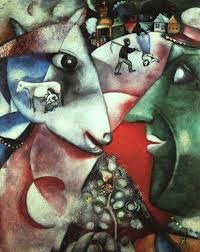10 Years Without Bykau

On 22 June, ten years will have passed since the great Belarusian writer Vasil Bykau passed away. Bykau’s works have become regarded as masterpieces of world literature. Foreign publishing companies translated his books into more than 40 languages, and the overall copies put out have reached up into the millions. The new film In the Fog was based on one of his books and has already won several awards in Europe.
For Belarus, Bykau symbolizes something more than just a writer. He arose at the beginning of the Belarusian independence, helped the Belarusian Popular Front and publicly and consistently opposed Lukashenka's authoritarianism. His civil activity set an example of civic responsibility which public figures should live by.
Writer of the War
Many know Bykau as a talented writer. His works depicted the war through the eyes of an ordinary soldier – the tragedy of a person and a human soul. He saw the war not from the position of the Communist logistical commissioners, but as a soldier who journeyed through the whole of Europe. It is precisely this, the centring of a person within a moral tragedy, that is found foremost in his books, a conscience choice made to force out the traditional Soviet pomposity of its great victory.
During World War II enemy forces wounded him several times, and he nearly died. His parents even received a letter that Vasil Bykau died in a fight, and the authorities embossed his name on a mass grave obelisk. However, he continued his military service and marched through Europe in a squad in the Red Army. Later, Bykau would say that Stalin took the victory away from the people, as “we achieved victory, but not freedom”.
After the war, Bykau started writing. He published his first book "The Last Fighter" in 1958. In 1965, Bykau published the novelette “No Pain for the Dead”. The Soviet authorities “appreciated” the book. However, “Unknown people” threw stones at his windows, showered his wife with tomatoes and beat the writer. The Communists hated Bykau and tried to do everything to make him emigrate.
Regardless, Bykau survived the harassment and soon the political thaw came. The authorities started giving Bykau state awards and adapting his novels to film. However, everyone knew it was just a game. In the end, it was clear that Vasil Bykau and the Soviet authorities distrusted each other.
Belarus – the Years of Revival
The Belarusian revival started in Kurapaty, the stove where the Soviet authorities committed mass executions of ordinary Belarusians. A prominent Belarusian politician Zianon Paznyak published an article about the discovery of the truth about Kurapaty in 1988, but his article saw the light of day thanks only to Vasil Bykau. He wrote an introduction to the article and pursued its publication.
Approximately at the same time Bykau had become “the Godfather” of the Belarusian Popular Front, the movement that helped to achieve the country’s independence. Bykau protected the Front from the KGB provocations by his personal authority and helped the democrats to get into Parliament. Former MP Syarhei Navumchyk recalls that he got his mandate due to the words of support from Vasil Bykau, which were printed in his promo leaflets.
Later, Vasil Bykau became the member of the BPF Board and the main authority for the Belarusian opposition. However, Bykau defended not only Belarusians. When the Soviet troops invaded with their tanks in Vilnius back in 1991, Bykau supported the Lithuanians in their fight for independence. When the Communists made an attempt to preserve the USSR forcibly in the same 1991, Bykau bravely stood against them.
At the presidential elections in 1994, Vasil Bykau worked as part of the democratic candidate Zyanon Paznyak’s team. They lost the election to Lukashenka.
Forced Emigration
When Lukashenka arrived on the national stage, the state publishing companies accepted Vasil Bykau’s works more and more rarely. One script idly remained with a publishing company for three years. They say that the KGB monitored Bykau’s phone conversations and watched his every move and state propaganda smeared the writer. The state newspaper "Nioman" called him a “corpse” when he was alive. Bykau used to say he felt no fear for his life, but “cannot write without freedom”. During Soviet times Bykau managed to handle all this, but it caused him great health problems.
In 1998, Vasil Bykau accepted the invitation of the Finnish PEN-centre and went to write first to Sweden, and then to Finland. In 2000, Bykau returned for a short time, but decided to leave again. This time he moved to Germany for two years. The state propagandists rather enjoyed making light of the fact that in his elderly age Bykau emigrated to the country he fought against in his youth.
In 2002, President of the Czech Republic Václav Havel invited Vasil Bykau to live in the Czech Republic. The writer accepted the invitation but did not stay there for long. His health was deteriorating and even Havel’s personal physician could not help. Vasil Bykau decided to return to Belarus until his last days were upon him.
The Comeback
Vsil Bykau passed away on 22 June 2003. Tens of thousands of people came to bid him farewell, with the column or mourners stretching up to 15 kilometres. The official delegation left the funeral when Bykau’s son covered the coffin with the white-red-white flag. Current PM Milhail Myasnikovich attended the funeral, one of the few authorities to do so. Lukashenka did not attend the funeral, while the state TV only briefly mentioned the event. Meanwhile, the Russian television made Bykau’s funeral top news.
Bykau has always remained Lukashenka’s enemy. He defended Belarusian independence while Lukashenka signed unification agreements with Russia. The great writer openly accused the authorities of murdering politicians and journalists. Still, Lukashenka disliked Bykau the most for his position of authority in Belarusian society.
In 2010, more than 100,000 Belarusians signed a petition to name one of the streets in Minsk after Vasil Bykau, but the authorities continue to ignore their request. Even the memory of what many consider to be the greatest Belarusian remains a danger for Lukashenka's regime.
In 2005 Zina Gimpelevich from the University of Waterloo published “Vasil Bykau: His Life and Works”, the only biography of Vasil Bykau in English. Before he died, Bykau wrote an autobiography “The Long Road Home”. To this day, it remains a text in search of its translator.




 The region has a significant tourist potential thanks to its natural conditions – the abundance of lakes. Braslaŭ's lakes attract many tourists as a popular resort destination in Belarus. This is a complex of large lakes in the northwestern corner of the region on the border of Belarus, Lithuania and Latvia.
The region has a significant tourist potential thanks to its natural conditions – the abundance of lakes. Braslaŭ's lakes attract many tourists as a popular resort destination in Belarus. This is a complex of large lakes in the northwestern corner of the region on the border of Belarus, Lithuania and Latvia.

